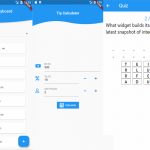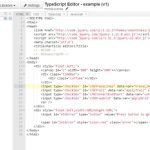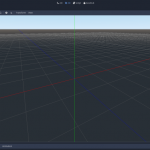COBOLl is one of the earliest and best programming languages for beginners. For over six decades, COBOL has been at the core of the business world, running the mission-critical operations we rely on. Banks, insurance companies, and governments all rely on COBOL to process the world’s most important transactions and records, even though they may have a modern Java interface on the front end. COBOL is not a relic of the past, nor is it unable to keep up with the latest programming trends. Instead, it is an ever-evolving language that has adapted to the changing needs of the business world.
Despite its importance, it can be difficult to learn, so having access to the right resources is essential. This article will provide an overview of the best resources to learn COBOL and how they can help you become a competent programmer.
Table of Contents
Tutorials and Courses

COBOL Programming with VSCode
IBM’s COBOL Programming with VSCode is an open-source course created by American River College, IBM, and its clients as part of the Open Mainframe Project. This course is designed to provide a comprehensive overview of COBOL programming, with a focus on using modern tools such as Visual Studio Code with Zowe and ZOpen Editor extensions. It covers topics such as writing, testing, executing, and debugging basic COBOL programs.
The course is free-to-audit and can be accessed through Coursera, YouTube, and Pluralsight. Those who wish to use IBM’s mainframe for the courses can register for the course on the Open Mainframe Project website.
Mainframe: The Complete JCL Course from Beginner to Expert
The student will learn crucial concepts about Cobol in this course, including:
- Successfully clearing a job interview based on Cobol Programming
- Creating one’s own JCL and being in a position to execute it
- Developing a Cobol program and being able to execute it using JCL
- Understand the keyboard and how every parameter involved in programming is positioned
- Accessing a package of source codes that will help you work with almost 20 utilities
Mainframe: The Complete TSO/ISPF from Beginner to Expert
This course will teach mainframe users the necessary skills to excel in their work and projects. Through this course, students will learn how to create basic COBOL programs and JCLs, and how to execute TSO/ISPF operations in them.
Students will learn to create basic COBOL programs and JCLs and perform all TSO/ISPF operations. They will be able to reduce their daily work by 20% by applying these TSO/ISPF commands and writing them on their mainframe server for use in their projects.
Additionally, they will learn to manipulate keys to display their custom keys, understand the relation between TSO and ISPF and create PS and PDS files, change settings in their ISPF screen, master dataset utilities, explore foreground and batch processing, perform major operations inside SPOOL and SDSF, and use advanced TSO/ISPF options such as advanced CREATE, different ways to resolve space issues, scrolling, auto-fill, and more.
The course also covers a guided illustration of basic COBOL programs and basic knowledge on VSAM, as well as bonus lectures on DB2 operations such as DDL and DML.
Learn Mainframe COBOL – Beginner to Expert
The course gives the learner a professional approach to programming through a step-by-step guide. You should expect to learn the fundamental concepts needed for you to become a developer and to be able to carry out testing.
It will teach you the core skills needed to apply for a Mainframe Developer or Testing job. You will learn the basics of Mainframe COBOL up to an advanced level, allowing you to demonstrate your understanding to anyone.
You will also learn real-time examples, as a Mainframe Developer would, to gain complete proficiency in Mainframe Topics which will build your confidence for the job.
This is a real-time IBM Mainframe Connection Oriented Training, and you will learn about connecting to the Mainframe system and working with different modules, the different types of applications used on the Mainframe, and many other topics. After completing the course, you will be prepared to take advantage of job opportunities with different large-scale companies using Mainframe.
The Complete Mainframe Professional Course – 4 Courses in 1
This is the best course for you to learn Unix systems services, CICs, Covers Cobol, JCL, and VSAM. This course is also good for those who wish to know how to code Job Control Language programs.
The course in 1 is a comprehensive course that covers the fundamentals of the Mainframe environment. It includes 19 hours of video content and over 200 lectures, covering topics such as TSO/ISPF commands, Job Control Language basics, COBOL basics, VSAM, and CICS.
The course also includes 5 COBOL assignments, 2 mini projects in CICS, and a practice test. Additionally, the course is updated monthly with new content, resources, and articles.
With a 30-day money-back guarantee, this course is the perfect way to get started with Mainframe and begin a new career as a Mainframe Professional.
Mainframe 5 Modules – TSO/ISPF, JCL, VSAM, SDSF, Z/OS-UNIX
This course is perfect for anyone who wants to learn about Mainframes: from those who are completely new to the field, those who want to upgrade their skill set, and seasoned professionals who want a refresher.
For 19 hours, covering TSO/ISPF, JCL, VSAM, SDSF, and Z/OS-Unix, this course will give you a full overview of the Mainframe environment. You’ll get all the lecture presentations, 5 COBOL assignments, 2 Mini projects in CICS, and a practice test to test your knowledge.
Plus, access to over 6,200+ Students enrolled in the course. With regular monthly updates including new content, videos, resources, and articles, you’ll always be learning something new about Mainframes!


